If you have space and water, they are easier to keep than chickens, says CHRIS ASHTON.

From troubles of the world I turn to ducks, beautiful, comical things’ – so said Tom Bartlett when he quoted F.W.Harvey’s poem in his video about domestic ducks. Harvey had been a soldier during the First World War, and many of his poems were written whilst he was a prisoner of war in Germany. This Gloucestershire man saw the duck as an emblem, an ambassador of humour in a troubled world. Tom was a great ambassador for waterfowl too, and Folly Farm near Bourton on the Water, also in Gloucestershire, became well known for ducks and geese in the eighties and nineties. Sadly, Tom died this year (2017), but he is remembered by many people for his enthusiasm and generosity.
Ducks can, indeed, be captivating creatures and seem to occupy a part of everyone’s childhood, whether on the canal, municipal pond or smallholding. This fascination is linked with the ducks’ relationship with water. Dabbling in mud, up-ending in weed, and slurping on the water’s surface, ducks are at ease with the world and are perfect to create a relaxing environment after a hard day at work.
Plenty of breeds and colours to chose from
If you only want ducks for fun - not for eggs or for the table - then the smaller domestic ducks such as Call ducks and Miniature Appleyards are cheaper to keep than the larger breeds. Their appetite is smaller and, of course, they require less space. These little ducks are kept as pets and as show birds, for Call ducks come in an array of colours. They are generally poor layers but great characters, whilst the miniature ducks can be good layers and sitters and are useful all-round birds.
Denne historien er fra Sept - Oct 2017-utgaven av Practical Poultry.
Start din 7-dagers gratis prøveperiode på Magzter GOLD for å få tilgang til tusenvis av utvalgte premiumhistorier og 9000+ magasiner og aviser.
Allerede abonnent ? Logg på
Denne historien er fra Sept - Oct 2017-utgaven av Practical Poultry.
Start din 7-dagers gratis prøveperiode på Magzter GOLD for å få tilgang til tusenvis av utvalgte premiumhistorier og 9000+ magasiner og aviser.
Allerede abonnent? Logg på
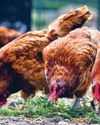
Growing food for Chickens
Mary Larham explores some crops to grow on your holding…
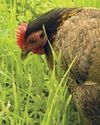
Poultry in the garden – the truth!
Jo-Jane Buxton shares her experiences
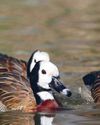
The British Waterfowl Association
Which came first, the goose or the egg?

WHY FIT A FAN IN AN INCUBATOR?
Brinsea Products, the Incubation Specialists explain the difference between still air and forced draught
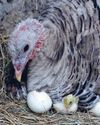
Incubating turkey eggs
Janice Houghton-Wallace looks at broody turkeys and artificial incubation
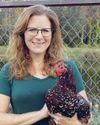
Chicken nesting box herbs
Diana Clauss owns The Blue Feather Farm, in St Cloud, Florida, home to chickens, ducks, goats, and Anatolian Shepherd dogs.
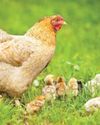
Incubate in January?
Jessica Wombwell says plan the breeding
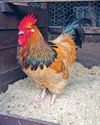
Andy's DIARY
Andy emphases the importance of keeping out damp and wet but allowing ventilation even in cold weather
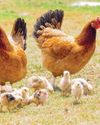
Feeding for Breeding
It may be winter, but as Joanna Palmer, nutritionist for Smallholder Range explains, now’s the time to get your flock in tiptop shape and plan ahead for a successful breeding season next spring.
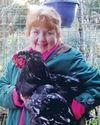
A chick named Cuckoo raised by a duck!
Chris Hammacott and her husband live on a small croft in the Outer Hebrides, they keep a ‘no kill’ flock or rare and rescue sheep which they use to spin and weave rugs. They also share the 8 acres with hens, ducks, cats and 9 rescue pugs.